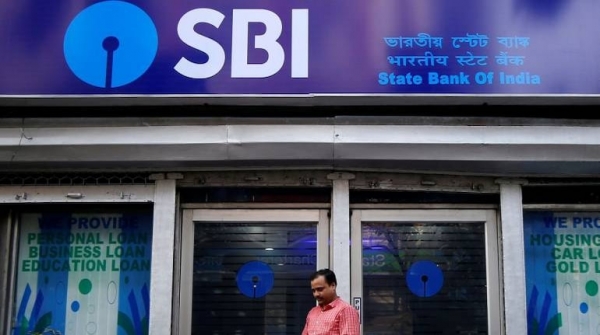SBI mega property e-auction across India starts today: Key things to know
SBI mentioned on its website that “We at SBI are transparent when putting immovable properties, mortgaged with the bank / attached to a court order to auction
- by Gaurav Grover 2021-03-05 06:48:09
State Bank of India (SBI) is going to conduct an electronic auction (e-auction) for the mortgage properties on March 5th. So, if you are planning to purchase a home at a much lower price than current market rates, you have a chance now.
SBI Mega e-auction: All kinds of properties like housing, residential, commercial, industrial, etc. The properties offered by the SBI e-auction. SBI said in a tweet: “Bid for the best! Here’s your chance to buy residential and commercial properties, land, Plant & machinery, vehicles much cheaper. Attend SBI Mega E-Auction and place your best bid".
SBI mentioned on its website that “We at SBI are transparent when putting immovable properties, mortgaged with the bank / attached to a court order to auction, and provide all relevant details that could make it an attractive proposition for bidders to participate in the auctions. We also incorporate all relevant details and indicate whether it is freehold or leasehold, give its measurement, location, etc., including other relevant details in the public notices issued for auctioning. "

To know more about the SBI mega e-auction, you can also visit this site
-EMD for the particular property as mentioned in the online auction notice.
-KYC documents need to be submitted to the concerned SBI branch.
- Valid digital signature: Bidders can contact e-auctioneers or any other approved agency to obtain a digital signature.
- Once the bidder submits the EMD deposit and KYC documents to the concerned branch, their registered login ID and password will be sent via email id by e-auctioneers.
- Bidders must log in and bid during auction hours on the date of e-auction as per auction rules.
The right price: While it is commonly understood that properties available at auction are cheaper, experts say this may not always be the case. "The reserve price in the case of an e-auction is generally the circle rate. The bidding starts at this price. It is possible to get the property at a lower price than the market price," said Bhavin Jada, partner, Strategy Law Partners, a Mumbai-based law firm. Before going for bidding, it will be good to place your own research about the market price of the property to check if you are not paying a higher premium for it. The e-auction process is transparent. The bank knows its customer (KYC) of bidders and other bidders know the number of bidders and the price they are bidding," said Gada.
Physical condition: Information about property is available in the public domain. Therefore, it would be best to do physical verification of the property before bidding on it.
"The bank may have further leveraged the property or may have used it to provide accommodations for officials, so it would be good to do a physical verification of the property to understand its financial condition," said Gada.
Clear title: The acquirer of a property through an e-auction should be wary about the title of the property. It is important to verify that the title flow of the property is clear. `` While it is assumed at first glance that the property to be auctioned will be free from all legal impediments, considering that the property could be involved in various disputes, which may not be easily deciphered through public verification, is always a concern. For example, if the property is involved in a family dispute or inheritance, there are disputes about ownership, ownership or acquisition, tax claims, etc. said Vaibhav Gaggar, managing partner, Gaggar and Associates, a Delhi-based law firm.
Unfortunately, the authorities put the property up for e-auction on an “as is where is basis” and clearly make clear that the potential buyer must conduct due diligence and assess legal barriers, if any. Since there is no central nodal point for conducting due diligence of any property, let alone in a digitized manner it’s almost impossible for anyone to conduct a 100% thorough due diligence. Having said that, thorough due diligence can at least lead to significant risk mitigation, even if not a complete risk waiver. That process must be adopted before placing a bid," he added.
Therefore, you must do the due diligence on your own before bidding for the property. Take the help of a solicitor, if you are not able to do it on your own.
Source: Money Control
Also Read: How to save tax without investments
POPULAR POSTS
Loan EMIs to Drop as RBI Slashes Repo Rate - Full MPC December 2025 Highlights
by Shan, 2025-12-05 11:49:44
Zoho Mail vs Gmail (2025): Which Email Platform Is Best for Businesses, Startups, and Students?
by Shan, 2025-10-09 12:17:26
PM Modi Launches GST Bachat Utsav: Lower Taxes, More Savings for Every Indian Household
by Shan, 2025-09-24 12:20:59
$100K H-1B Visa Fee Explained: Trump’s New Rule, Clarifications & Impact on Indian Tech Workers
by Shan, 2025-09-22 10:11:03
India-US Trade Deal Soon? Chief US Negotiator Arrives in Delhi as Talks Set to Begin Tomorrow
by Shan, 2025-09-15 11:54:28
Modi Meets Xi: Trump’s Tariffs, Strategic Autonomy, and the Future of Asia’s Power Balance
by Shan, 2025-09-03 06:40:06
Google Claims Gemini AI Uses Just ‘Five Drops of Water’ Per Prompt, Sparks Debate
by Shan, 2025-08-22 12:34:27
RECENTLY PUBLISHED

Pine Labs IPO 2025: Listing Date, Grey Market Premium, and Expert Outlook
- by Shan, 2025-11-05 09:57:07

The Agentic Revolution: Why Salesforce Is Betting Its Future on AI Agents
- by Shan, 2025-11-05 10:29:23

Top 10 Insurance Companies in India 2026: Life, Health, and General Insurance Leaders Explained
- by Shan, 2025-10-30 10:06:42

OpenAI Offers ChatGPT Go Free in India: What’s Behind This Big AI Giveaway?
- by Shan, 2025-10-28 12:19:11

Best Silver Investment Platforms for 2025: From CFDs to Digital Vaults Explained
- by Shan, 2025-10-23 12:22:46





 Subscribe now
Subscribe now 